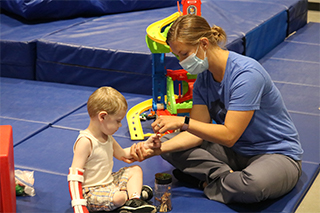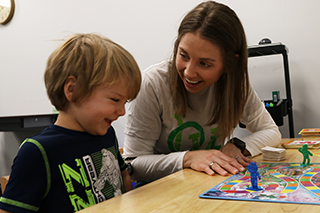How Episodes of Care Can Help Your Child Make Progress
However, endless therapy appointments is a lot of manage and
can burn out the child and the family. In addition, there is a tendency to see
a child’s skill development taper off when there isn’t a break from therapy,
resulting in fewer gains from one appointment to the next.
One of CP’s Occupational Therapists, Jessica Getter,
explains what episodic care can look like and why it can be a positive
experience for a family. The brief video can be viewed HERE.
Episodic care provides a way to concentrate on the most
immediate need for the child and focus on finding the right tools to help. The
family can then take a break from therapy and apply those tools at home to see
how the child does and if anything new arises.
Keep in mind that just because you aren’t coming to the
clinic, doesn’t mean work isn’t happening. Working on home programming can be
just as beneficial to a child because it allows them to apply the skills they
have learned to their daily environment while progressing naturally.
After a certain period of time, families check back in with their child’s therapist to see how things are going, if any new issues have come
up and/or if the child should start working on the next focus area back in the
clinic.
Interested in learning more about episodes of care? Contact our Therapy Services team today.



Comments
Post a Comment